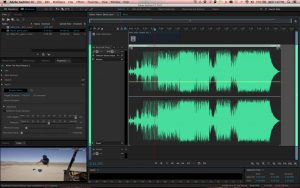Remixes and re-edits/edits have been an important part of dance music lifestyle since the beginning days of Disco.
Remixes, edits, re-edits, reworks, mash-ups, dub mixes, bootlegs – dancing songs can be a complicated place. Take two effective original songs of recent decades. Both songs contain substantial examples – we’ve put the unique tracks below the edits.The example usage in both recommend they could nearly be called re-edits. However, the extra original manufacturing and agreement completely modified the source content to create anything interesting and new.
This query can be complicated to response. The restrictions between remixes and re-edits have become unclear over the previous few years, and there’s definitely not really been a clear breaking line. However, there are a various of main features which define remixes in contrast to re-edits. One is about credibility and one affiliates to how they were produced.
Production of A Remix vs Re-Edit
First up, let’s talk about the production of these two types of routes. A remix is when a producer has accessibility to the unique files from a song, such as the separate audio tracks, allowing them to either treat or completely replace parts in solitude – like the bass line or the drums.
A re-edit, on the other hand, is made from the completed full recording of a song rather than the personal audio parts. This greatly reduces the innovative licence available to a maker. They can’t substitute the bass or put results on just the oral as they only have the complete song to play with. Instead, edits are about re-arrangement with the aim of creating a history more dance floor friendly. Common factors to do when creating a re-edit include:
Reducing and sticking parts
Improving intros and breakdowns
Eliminating some sections, reducing or elongating others.
Why Did DJs Begin Making Re-Edits / Remixes?
Why was developing this type of edit or remix even essential ?
“DJs often desired longer records with longer percussive passages.”
Francis Grasso, DJing at the Sanctuary in New York in the earlier 70s, had found that percussion-heavy details and breaks were extremely effective on the dancing floor.
Hip Hop DJs had also noticed the amazing power of the break on dancers too. They all knew that more time information really permitted a crowd to ‘dig in’, to actually get into their pattern and lose on their own in the music. All desired out longer tracks, searching into unknown album cuts and unusual imports to obtain the sort of information they desired, understanding they could use smashes and vamps to segue efficiently from one monitor to the next, keeping their viewers locked in on the dance ground in the process. And if the history they were enjoying didn’t have a long crack or a long vamp, they could make one by mixing between two duplicates of the track.
It is this combined discovery, this key DJ knowledge, that drove the innovation of both the remix and the re-edit in the 1970s. DJs from both the disco and hip-hop planets would use two duplicates of the same tune to increase breaks and vamps and to remove interruptions to the musical flow. The sole objective was simple: they never desired to give anybody an reason to leave the dancing floor. DJs began creating their own reel-to-reel modifications to simulate this process, to make long, danceable lines. Edits were often basically tidier cut and paste editions of what they would do stay with two records. The remix too was created from the same requirement: DJs required and dancers wanted information that were particularly re-tooled for the dancing floor
The Validity Of Remixes vs. Re-Edits
The 2nd traditionally defining function of remixes and re-edits was validity. Remixes were usually done ‘officially’ – requested by record labels and absolutely legal. Re-edits were done independently, usually for use only by the DJ who created them and lawfull. Although technically infringing trademark, all over the pre-digital era the bigger music market was content to neglect DJ re-edits as they could be an efficient marketing tool for the history labels and it was only operating DJs who had accessibility to them.
However, newest years have seen a unique rise in re-edits being launched and sold as either unique compositions or as ‘reworks’. There are huge amounts of duplicate re-edits, remixes, cover editions and mash-ups online. The major brands no more time turn a sightless eye to manufacturers using their clients’ work uncredited, and all the degrees have entire divisions dedicated to monitoring sample infringements and protecting any potential royalties for their privileges holders. This only turns into an issue for you if your Love Is The Concept re-edit on SoundCloud instantly becomes effective and you’ve not eliminated the sample: then the attorneys will come searching for you.
The Currently Fuzzy Line Maintains Blurring
So is there a obvious response to the query of difference among remixes and a re-edits? Accessibility to the unique parts still makes anything a assured remix, but it’s not a need anymore. You no more time need original components to make a final manufacturing that appears to be more like a remix. Application like Logic, Ableton Live, and Reason have become more innovative, and enabled manufacturers to considerably operate and change the source material. There’s a whole competitors devoted to audio indication separating that could end up in upcoming DJ software, and applications like Xtrax Stems (read our review here) currently does its best to split up paths into stems.
Re-edits have been as significant in the growth of dance music as remixes, and a lot of of our preferred tunes are simply reinterpretations of mature music, whether via a 2 bar sample cycle or a new remodel of an whole song.
If we’re searching for a clear, easy definition, then the unique meaning still stands, even if the limitations are often a little blurry. A remix is a new presentation created from the personal parts of a song, while a re-edit is designed from the whole song. And until somebody comes up with a much better idea, when it arrives to everything that doesn’t nicely fit into possibly category, we’re just utilizing the term ‘re-work’. Easy!



